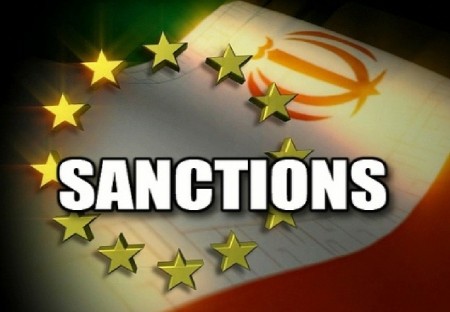LATEST: Top Nuclear Official Salehi Rebuffs MPs: “We Do Not Need 60% Uranium”
SATURDAY FEATURE
Iraq Op-Ed: Washington Post’s Ignatius “Forget Analysis — Let’s Just Blame Iran”
On Friday, high-level negotiators from Iran and the 5+1 Powers finally announced agreement on the implementation of November’s interim nuclear deal, including suspension of enrichment of 20% uranium by Iran and a start to the easing of US-led sanctions.
The two sides said that the agreement will now be taken to Tehran and the capitals of the 5+1 Powers (US, Britain, France, Germany, China, and Russia) for confirmation.
The Supreme Leader, who denounced US “hostility” in a speech on Thursday, could refuse to endorse the deal, which is scheduled for six months while a comprehensive settlement is negotiated.
However, the biggest threat to the process now appears to be in Washington. A source in the US Senate told CNN on Friday that 77 of 100 Senators will support a bill mandating new sanctions on Iran if Congress believes Tehran is not living up to the interim agreement.
The bill, which could be presented for consideration as early as the end of January, would give the Administration a year for further diplomacy — provided Iran is not seen to “cheat” on a deal.
However, even the threat of new sanctions could be enough for Iran’s withdrawal from the implementation of the agreement. After US Senators tried last month to put forth the bill for additional measures, the Iranian Parliament responded with a bill — still to be confirmed — mandating enrichment of uranium up to 60%.
The White House tried on Friday to deflect the Congressional move. “Our strong concern is that passage of sanctions at this time would negatively affect and perhaps scuttle the negotiations that are underway and then make it much harder, if not impossible, to achieve our objective peacefully, ” Press Secretary Jay Carney said.
And State Department spokeswoman Jennifer Psaki, in contrast to the optimistic statements from Tehran and 5+1 Powers’ spokesman Michael Mann, emphasized that an agreement had not yet been “finalised” and talks were ongoing.
Top Nuclear Official Salehi Rebuffs MPs: “We Do Not Need 60% Uranium”
The head of the Atomic Energy Organization of Iran, Ali Akbar Salehi, has pushed back MPs trying to strike a tough nuclear line by mandating the Government to enrich uranium to 60%.
“If one day we plan to use this energy to fuel ships or submarines, it is better to use nuclear reactors,” Salehi said.
However, he added, ”If the lawmakers deem it expedient that 60-percent enrichment is in the country’s interests and sign it into law, we will have no option but to obey.”
In a largely-symbolic move — given that Iran has no nuclear vessels — more than 200 of Iran’s 290 MPs have signed the draft bill.
The legislators were responding to an effort by US Senators commanding the Obama Administration to impose new sanctions if Congress found that Iran was not adhering to an interim nuclear deal.
Senior Judiciary Official Larijani: 2009 Protests Were “Coup d’Etat Against Regime”
Responding to a call by MP Ali Motahari for a review of the case of political prisoners, senior judiciary official Mohammad Javad Larijani has denounced the protests after the disputed 2009 Presidential election:
The nature of the sedition was a full-scale coup d’etat against the regime, [in which protesters] cooperated extensively with America, European governments, the Zionist regime, and all of the anti-revolutionaries.
Larijani also criticized Mir Hossein Mousavi, who “lost” to Mahmoud Ahmadinejad in 2009 and has been under strict house arrest since February 2011:
When it so happened that before the end of the elections, one of the candidates spoke and said “I am the elected President,” a great crime occurred. The first victim was democracy, because democracy is not created through street brigades, but rather through ballot boxes.
City Councillor Fired for Using Facebook
Azam Sadat Hosseini, a councillor in Behshahr in northern Iran, has been removed from her position because of her participation in Facebook.
Since her election to the city council last summer, Hosseini had posted summaries of the discussions and decisions of meetings.
She announced the news on her Facebook page on Thursday:
What is the reason for all this fear and apprehension? Is it because I speak with my friends transparently and frankly? Is it because, according to the teachings of the Great Leader of the Revolution [Imam Khomeini], I consider the people to be my benefactors? Because I trust them to manage the city’s affairs?
Noting that Foreign Minister Mohammad Javad Zarif is an avid user of Facebook — and has said so on State TV — Hosseini assked, “Are we above Dr. Zarif? [He] shared the results of the P5+1 [interim nuclear] agreement on his Facebook page before it was published on any news agency or website.”
In her last entry on Facebook, Hosseini wrote:
As you know, the people of Behshahr are not entitled to advancement and a good life in their town, and must not be informed about the decisions made by the City Council. I
Investment projects and a good life are for big cities and a town like Behshahr must be managed like a narrow-minded village, and its people must regress on a daily basis. Therefore, because a City Council member’s dissemination of information is an obstacle in our efforts to achieve this, this is a cause of disappointment to us.
All in favor, raise your hands!
Oil Minister: Iran Oil Export Revenues Down More Than 30% in 2013
Oil Minister Bijan Namdar Zanganeh has indicated — perhaps inadvertently — that Iran’s income from oil exports more than 30% in 2013.
Namdar Zanganeh said on Thursday that Tehran earned $34 billion through crude oil and gas condensates between March and December 2013.
The annual rate of $45 billion compares with $69 billion in revenues in 2012 and $95 billion in 2011.

